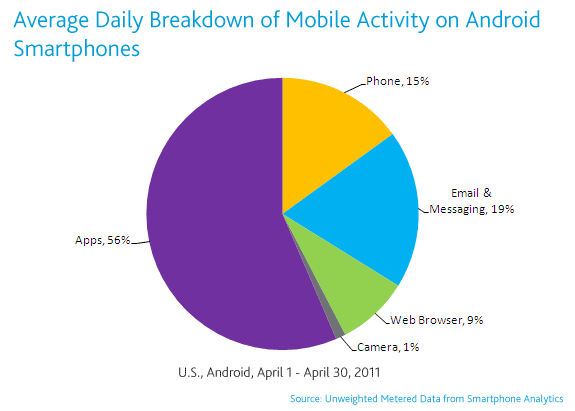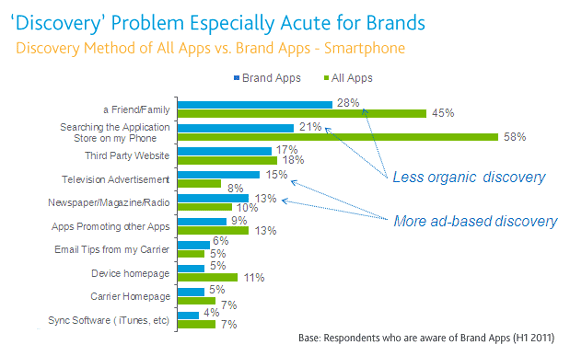With more consumers using smartphones and connected devices, there is no avoiding the importance of mobile apps. For example, apps are responsible for 56 percent of all activity on Android smartphones according to data shared by Jonathan Carson, CEO of Telecom at Nielsen, during Nielsen’s Consumer 360 conference.

Carson also welcomed Hiroto Ebata of Coca-Cola Japan, Heidi Browning of Pandora and David Young of Hotels.com to share insights on their experiences with mobile apps.
What works?
Carson noted that branded apps that “give back” are much more popular than other apps. Rewards apps are particularly popular.
When it comes to promoting and marketing an app, Carson underscored the importance of “word-of-mouth.” In fact, for branded apps, it is the most common form of “discovery.” (For other kinds of apps, “searching the app store” is tops.) Consumers also indicated that brand affinity and third party endorsements in the form of ratings and reviews were crucial in their decision to download a branded app.

For Pandora, Heidi Browning, noted that their strategy for mobile hinged on three key points. “Keep it simple,” she said. “Using the app should be as easy as turning on the radio.” Making the experience “seamless” was also critical, so that users could have the same experience across devices. And finally, make it personal. “When you do personalization well it pays off because it creates passion,” Browning noted. “And passion breeds engagement.”
Carson detailed additional musts for a successful app:
- Define success in advance: Who are you trying to reach? What are you trying to achieve? What are the right metrics or Key Performance Indicators (KPI)?
- Apps can support your strategy; they are not a strategy in and of themselves
- Give consumers something useful: price comparisons, stain removal tips, recipes, weather
- Protect the brand: A great app can revitalize your brand, a ‘buggy’ one will destroy it
